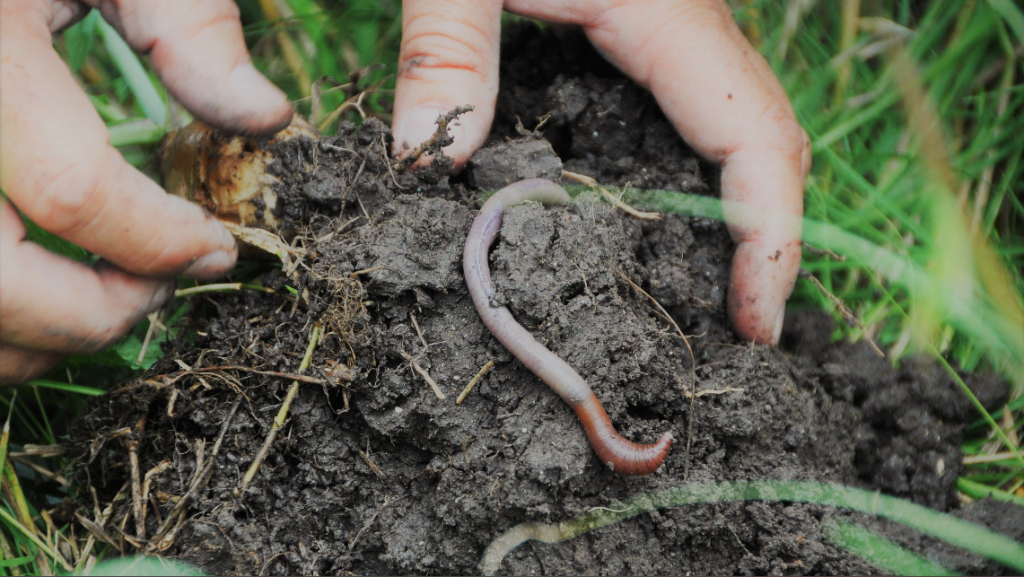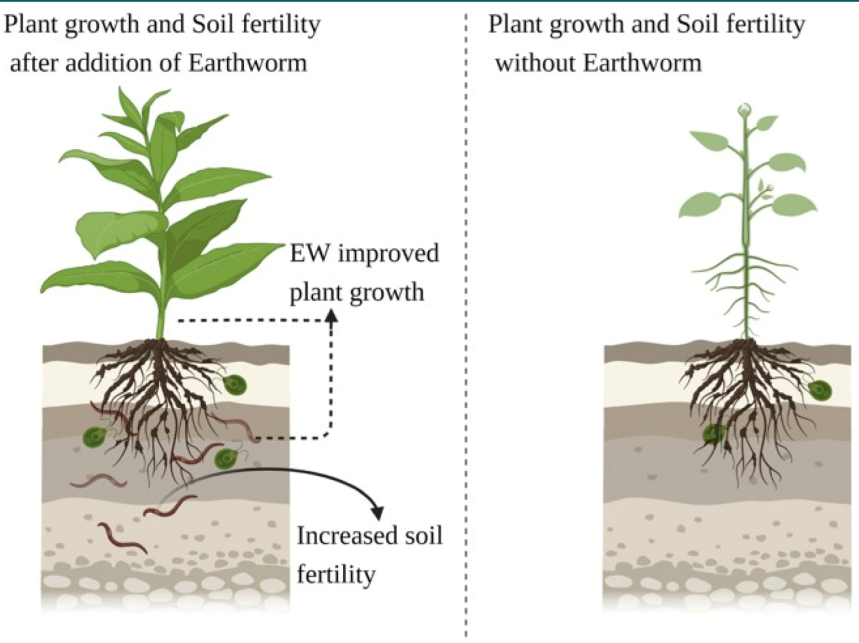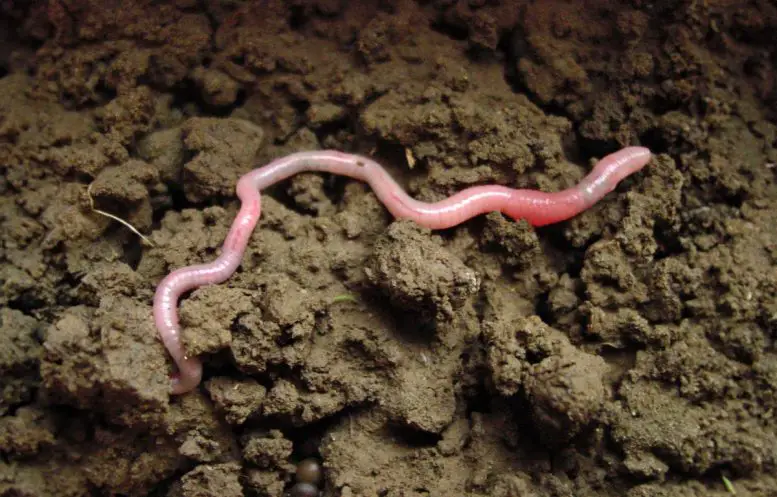In the intricate tapestry of Earth’s ecosystems, Earthworm unassuming creatures play critical roles in supporting life on our planet. Among these unsung heroes are earthworms, whose quiet but indispensable work beneath the soil has far-reaching implications, including a surprising contribution to global grain production.
According to new research from Colorado State University researchers published today (September 26) in the journal Nature Communications, earthworms play a significant role in the production of food worldwide, contributing to roughly 6.5% of grain yield and 2.3% of the legumes grown globally annually.
Earthworms may produce up to 140 million metric tonnes of food annually, according to new estimates from three CSU researchers. This is roughly equivalent to the amount of cereal grains (rice, wheat, rye, oats, barley, maize, and millet) grown annually by Russia, the fourth-largest producer in the world.The study’s lead author and associate professor of agroecosystem ecology at Colorado State University, Steven Fonte, said, “This is the first effort that I’m aware of that attempts to take one piece of soil biodiversity and say, ‘OK, this is the value of it; this is what it’s giving us on a global scale,'”
Role of Earthworms in Soil Health
Earthworms enhance plant growth in a number of ways, including by improving soil structure, aiding in water retention, and contributing in the beneficial churning of organic matter that increases the availability of nutrients to plants. Other studies have revealed that earthworms can aid in the synthesis of hormones that promote plant growth and assist plants in defending themselves against typical soil diseases. According to some estimations, earthworms can boost plant productivity by roughly 25% overall.
By combining and analysing maps of earthworm abundance, soil characteristics, fertiliser rate, and crop yields, Fonte and his colleagues Marian Hsieh, a doctoral student in the same department, and Nathan Mueller, an associate professor in the Department of Ecosystem Science and Sustainability, calculated the contribution of earthworms to global food production.

According to the data, earthworms were more detrimental to grain output in the developing world, contributing 10% of grain yield to Sub-Saharan Africa and 8% to Latin America and the Caribbean. Because farmers there often have less access to herbicides and fertiliser, Fonte speculated that earthworms there contributed more to the soil’s fertility. They rely more on organic matter rich in earthworms, such as crop waste and manure, which helps to increase the beneficial effect earthworms have on plants.
Earthworms and Sustainable Agriculture
In this study, Fonte and his coworkers evaluated the effects of earthworms on four grain crops: rice, maize, wheat and barley. They also looked at a variety of legumes, such as soybeans, peas, chickpeas, lentils and alfalfa.
Fonte stated that he believes soil biodiversity has historically been neglected and that he hopes this investigation will raise awareness of the good, observable effects that healthy soils can have on crops.
“If we manage our soils in a more sustainable way, we can better harness or leverage this biodiversity and produce more sustainable agroecosystems,” added Fonte. This work emphasises that capability.
According to other recent studies, soils may hold up to 50% of the world’s biodiversity, which is a significant rise over earlier estimates of 25%, according to Fonte. He stated, “Soils are really such an intricate habitat. But there haven’t been many attempts to comprehend the implications of biodiversity on our global agriculture output.

Implications and Future Directions
The data presented in the Nature Communications study delighted Diana Wall, a professor in the Department of Biology and the science chair of the Global Soil Biodiversity Initiative. Wall praised the work, calling it “really clever” and “very data-rich.” It’s pretty amazing.
According to Fonte, this knowledge might also affect upcoming initiatives to reduce erosion and drought. He cited earthworms as an illustration of how they might increase soil porosity, assisting in the beneficial uptake and retention of water.
Fonte issued a warning, saying that he and his colleagues do not support the transplantation of earthworms into areas where they do not already exist. Instead, he wants this effort to demonstrate how better soil biology management in areas where earthworms are already established could increase agricultural productivity and lessen our dependency on agrochemicals. Fonte stated that while this study is an essential starting step, he expects that researchers will continue to explore the advantages that different soil organisms have on crops.

According to Fonte, “Soils are still this big, big, black box that we don’t fully understand.” This investigation demonstrates that there are several opportunities that we are largely ignoring.
CONCLUSION
Furthermore, understanding the interconnectedness of ecosystems is vital. Earthworms are just one example of the myriad ways in which nature’s intricate web sustains life on Earth. By nurturing these connections and appreciating the often hidden contributions of Earth’s creatures, we can better safeguard our planet’s food security and ecological balance.
So, the next time you see an earthworm in your garden or beneath your feet, take a moment to acknowledge its quiet but profound contribution to feeding the world. These unassuming soil-dwellers remind us that, in the grand scheme of nature, even the smallest creatures can play a vital role in ensuring a bountiful harvest for all.
ALSO READ:Titanic Galaxy Cluster Collision Defies Cosmology Theories: “Should Not Have Occurred”




































